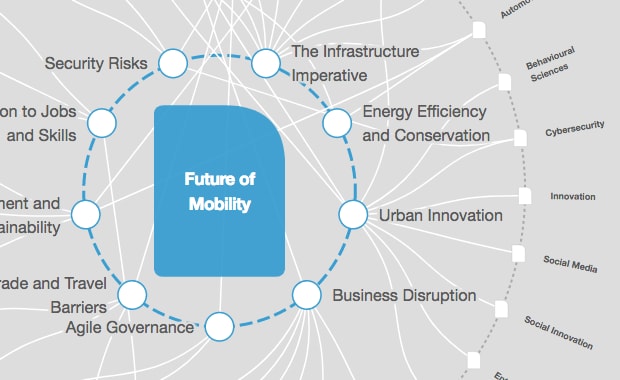How do you get people to trust self-driving vehicles? This company is giving them 'virtual eyes'

One of the biggest hurdles is our lack of trust in autonomous vehicles. Image: REUTERS/Ruben Sprich
We hear a lot about how autonomous cars are the future. They will be better and more efficient at driving than we are, and consequently our roads will become a great deal safer.
As a result, carmakers are ploughing money and effort into perfecting driverless technology.
But there’s little point in having this technology at our fingertips if none us want to use it.
One of the biggest hurdles to the widespread adoption of autonomous vehicles (AVs) is that we simply don’t trust them. The thought of ceding all control to a machine makes us nervous.

Do people trust driverless cars?
A survey last year by AAA found that while consumers welcomed enhanced features of autonomous technology, such as adaptive cruise control and automatic braking, they aren’t so keen on a fully self-driving car.
In fact, three-quarters of the respondents said they were scared to ride in a self-driving car. Only 10% said that they would feel safer sharing the roads with driverless vehicles.

Another study showed that despite improvements in the technology, levels of trust in it were falling.
A survey by researchers at MIT’s AgeLab found that trust in automation declined significantly between 2016 and 2017.
In 2016, 24% of respondents said they would be comfortable with being in a fully automated car, but in 2017 only 13% said the same.
Headlines about self-driving car crashes haven’t helped. In 2016 the first fatality involving an autonomous vehicle occurred on a highway in Florida. A Tesla that was in autopilot mode failed to stop when a tractor trailer entered its path, and the driver was killed.
Eyes on the road

It’s against this backdrop that a team of engineers and psychologists at Jaguar Land Rover are testing solutions to build trust in autonomous vehicles.
The UK’s largest carmaker is conducting live trials of autonomous vehicles with one main difference – they have “eyes”.
Research has shown that by giving a driverless car human-like qualities, people were more able to trust it.
In this case, the car communicates with a pedestrian as they use a pedestrian crossing. The virtual eyes seek out the pedestrian – appearing to “look” directly at them. This signals to road users that the car has identified them, and intends to take action to avoid them, reducing the fear that it will knock them over.
Jaguar Land Rover is recording and analyzing the behaviour of pedestrians as they wait to cross the road, to see if this feature will improve their confidence in the technology.
Pete Bennett, Future Mobility Research Manager at Jaguar Land Rover, says: “It’s second-nature to glance at the driver of the approaching vehicle before stepping into the road. Understanding how this translates in tomorrow’s more automated world is important. We want to know if it is beneficial to provide humans with information about a vehicle’s intentions or whether simply letting a pedestrian know it has been recognized is enough to improve confidence.”
Driving to the future

The lack of trust isn’t putting off carmakers. In fact, they are now locked in a race with technology companies to be the first to roll out self-driving cars.
But autonomous vehicles may not be the hoped-for panacea to all our traffic problems.
A three-year study by the Boston Consulting Group and the World Economic Forum found that AVs could create problems even as they solve others. For instance, they could actually end up clogging city centres.
The study found that travel times in downtown Boston could increase by 5.5%. This was because people would stop using public transport systems in favour of on-demand autonomous cars, putting more vehicles on the road.
That said, on the outskirts of the city, average travel times would improve by 12%.
And there are other benefits, too. Many people have long commutes, and travelling in driverless cars could enable them to use that time productively.
Car sharing could become the norm if there were a fleet of AVs available at the touch of a button.
Don't miss any update on this topic
Create a free account and access your personalized content collection with our latest publications and analyses.
License and Republishing
World Economic Forum articles may be republished in accordance with the Creative Commons Attribution-NonCommercial-NoDerivatives 4.0 International Public License, and in accordance with our Terms of Use.
The views expressed in this article are those of the author alone and not the World Economic Forum.
Stay up to date:
Mobility
Forum Stories newsletter
Bringing you weekly curated insights and analysis on the global issues that matter.
More on Emerging TechnologiesSee all
Dr Gideon Lapidoth and Madeleine North
November 17, 2025






